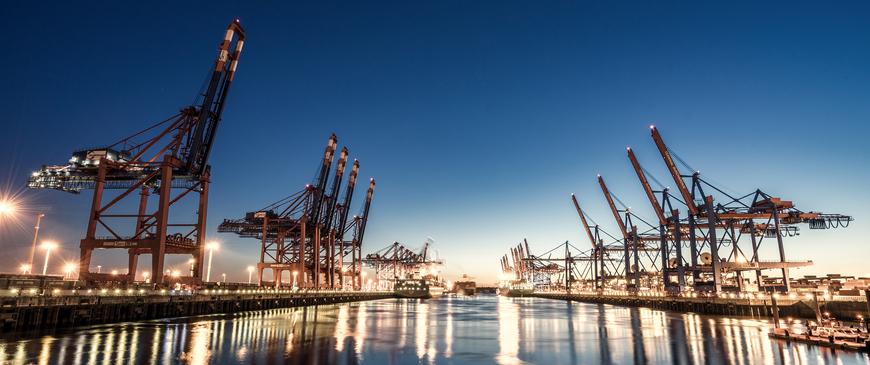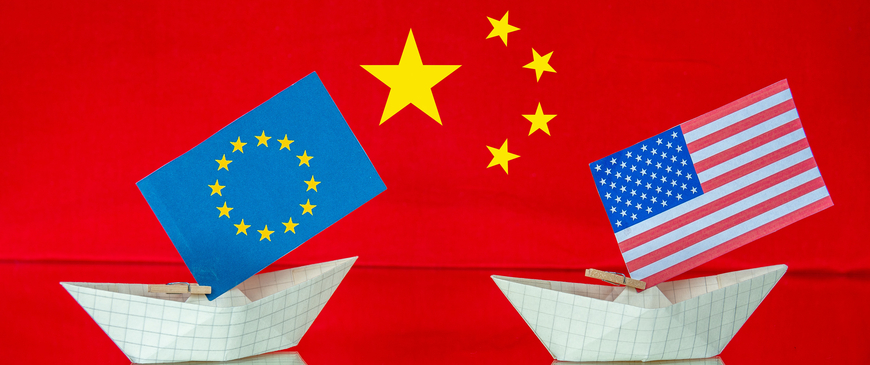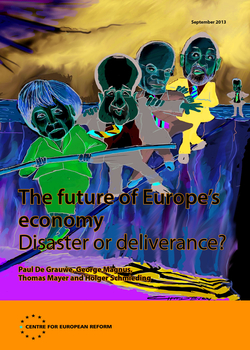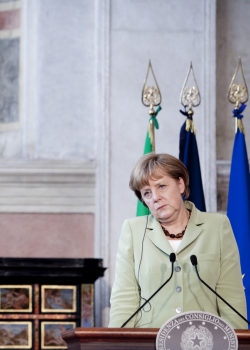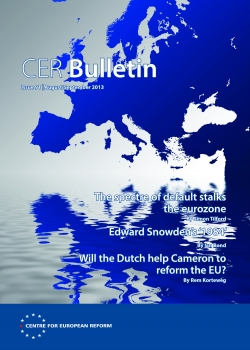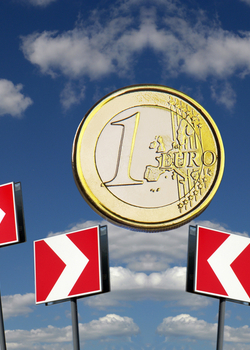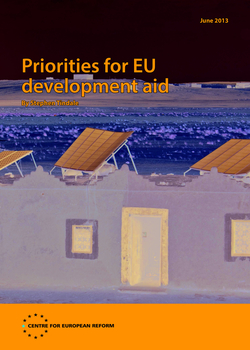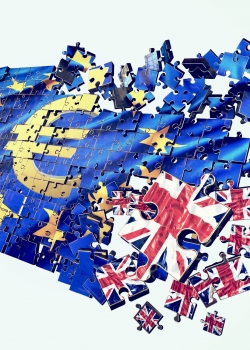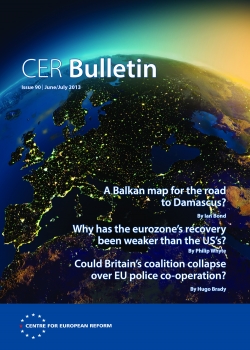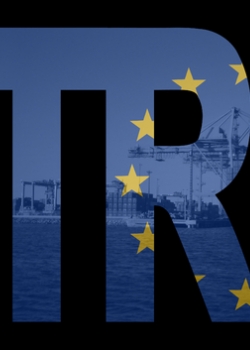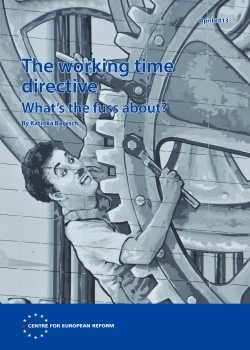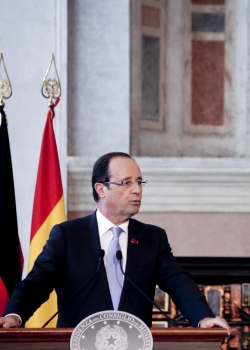Single market, competition & trade
Eurozone recovery: The world is not enough
04 October 2013
The eurozone is too big to rely on exports for economic growth. It needs policies suited to a large continental economy, not ones perfected by Germany.
What would a Brexit mean for EU competition policy?
30 September 2013
A British exit from the EU could have important repercussions for competition policy. Britain and the remaining EU countries would both be affected.
Issue 92 - 2013
27 September 2013
- Banking union – or Potemkin village?, Philip Whyte
- Europe cannot make up its mind about the US pivot, Rem Korteweg
- Whatever happened to the Schengen crisis?, Hugo Brady
Banking union – or Potemkin village?
27 September 2013
Since mid-2012, the eurozone crisis has been in remission. The period of relative calm which has prevailed since then has not been the product of an upturn in economic fortunes: until the recent summer uptick, the eurozone had suffered six consecutive quarters of declining activity and rising unemployment (a result in part of synchronised fiscal austerity across the region as a whole).
The future of Europe's economy: Disaster or deliverance?
18 September 2013
Four leading economists give widely divergent diagnoses of the eurozone's problems and very different policy prescriptions. The EU's future could depend upon which is right.
Continuity and change in Germany's EU policy
06 September 2013
Germany's EU policy is shifting. It will seek a 'grand bargain' with France but be tougher on the Commission. Treaty change is moving off the agenda.
Issue 91 - 2013
24 July 2013
- The spectre of default stalks the eurozone, Simon Tilford
- Edward Snowden's '1984', Ian Bond
- Will the Dutch help Cameron to reform the EU?, Rem Korteweg
The spectre of default stalks the eurozone
24 July 2013
A popular narrative has taken hold across much of the eurozone. The economic situation, so the story goes, is improving, or at least bottoming out, and the necessary institutional reforms are being put in place.
Don't let England's poujadists kill London's golden goose
08 July 2013
London keeps Britain afloat. But the city's wealth is dependent on its openness to immigrants, which is threatened by the country's increasingly hysterical immigration debate.
Priorities for EU development aid
14 June 2013
The European Commission should manage more development aid. This should be spent on programmes which best meet human needs, irrespective of foreign policy priorities.
Can national parliaments make the EU more legitimate?
10 June 2013
The euro crisis has hit the EU's legitimacy. Part of the answer is to give national parliamentarians a bigger role in the EU.
The CER commission on the UK and the single market
07 June 2013
The CER's commission was launched this week. Policy experts, economists and business people will examine the economic case for and against EU membership.
Why has the eurozone's recovery been weaker than the US's?
24 May 2013
The eurozone has experienced a much weaker economic recovery than the US since 2009. The reason is that it has made more glaring policy mistakes.
Issue 90 - 2013
24 May 2013
A dose of inflation would help the eurozone medicine go down
16 May 2013
Eurozone policy-makers are complacent about the risks of low inflation. If the euro is to survive, inflation will need to rise significantly, especially in Germany.
Europe's trade strategy: Promise or peril?
02 May 2013
TGAE report
Europe's growth strategy is based on a larger trade surplus with the rest of the world, to make up for slow domestic growth, as consumers are weighed down by debt.
The working time directive: What's the fuss about?
26 April 2013
The working time directive has had limited impact on British business. It has caused trouble in hospitals partly because the NHS relies so heavily on junior doctors.
European austerity: Turn or TINA?
25 April 2013
Despite the overwhelming weight of evidence, both empirical and theoretical, many policy-makers will continue to trot out Margaret Thatcher's favourite line: there is no alternative.
Is the euro crisis responsible for populism?
19 April 2013
The euro crisis is fuelling populism but it is not the only reason. Italy and Greece are special cases. Political uncertainty would prevail without austerity.
It's the politics, stupid!
25 March 2013
Many economists have been accused of being too gloomy about the euro because they underestimate the degree of political commitment that eurozone countries have made to the euro.


